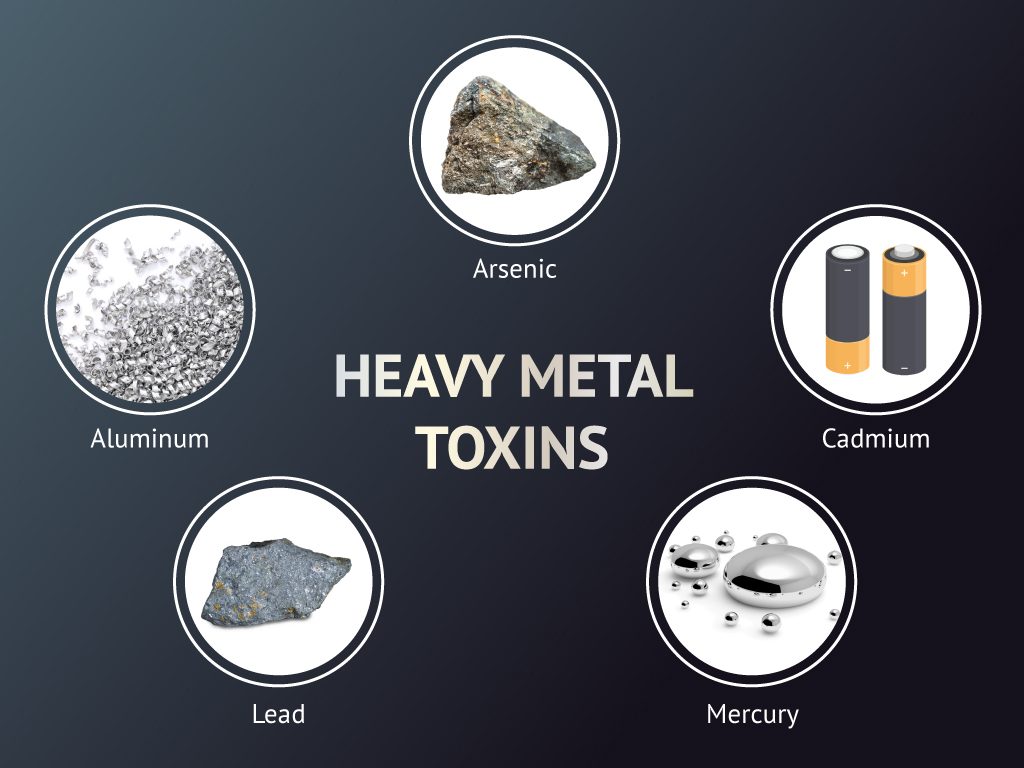Men, Beware: 5 Potential Shilajit Side Effects You Should Know About
Introduction
In the realm of natural supplements, Shilajit has gained popularity for its purported health benefits, particularly for men. However, as with any powerful substance, it's crucial to explore the flip side. In this blog post, we delve into the scientific nuances and potential pitfalls of Shilajit, specifically focusing on five side effects that men should be wary of.
What is Shilajit?
Shilajit is a sticky, tar-like substance found in the rocky mountains of the Himalayas, Altai, Caucasus, and other mountain ranges. It is formed over centuries by the decomposition of plant and microbial matter. Rich in minerals, fulvic acid, and other bioactive compounds, Shilajit has been lauded for its purported ability to boost energy, enhance vitality, and promote overall well-being.
The Dark Side of Shilajit: Potential Side Effects
1. Heavy Metal Contamination

Shilajit's origin in mountainous regions makes it susceptible to absorbing heavy metals from the environment. Studies have reported varying levels of lead, mercury, and arsenic in certain Shilajit products. Prolonged exposure to these toxic elements can have detrimental effects on the nervous system, kidney, and other vital organs.
Heavy metal contamination in Shilajit is a concern due to its natural formation in mountainous regions, where it may absorb minerals, including heavy metals, from the environment. Here is a list of some common heavy metals that can potentially contaminate Shilajit:
-
Lead (Pb): Lead is a highly toxic heavy metal that can accumulate in the body over time, affecting the nervous system, kidneys, and other organs.
-
Mercury (Hg): Mercury is a potent neurotoxin that can lead to severe health issues, particularly affecting the central nervous system.
-
Arsenic (As): Arsenic is a naturally occurring element that, in high concentrations, can cause various health problems, including skin issues, digestive problems, and cardiovascular issues.
-
Cadmium (Cd): Cadmium exposure can lead to kidney damage, respiratory issues, and long-term health concerns.
-
Aluminum (Al): Although not traditionally classified as a heavy metal, aluminum can still be a concern due to its potential neurotoxic effects and links to certain health conditions.
Before incorporating Shilajit into your routine, it is advisable to choose products from reputable sources that provide information on testing and quality assurance. Additionally, consulting with a healthcare professional can help address individual concerns and ensure safe usage.
2. Blood Pressure Fluctuations
One potential side effect of Shilajit is its impact on blood pressure. While some studies suggest that it may help regulate blood pressure, others indicate the possibility of fluctuations. Individuals with pre-existing blood pressure issues should exercise caution and consult with a healthcare professional before incorporating Shilajit into their routine.
Blood pressure (BP) is a crucial indicator of cardiovascular health, and maintaining it within a normal range is essential for overall well-being. Blood pressure is measured in millimeters of mercury (mmHg) and is expressed as two values: systolic pressure over diastolic pressure.
Normal Blood Pressure:
- Systolic Pressure: Less than 120 mmHg
- Diastolic Pressure: Less than 80 mmHg
Elevated Blood Pressure:
- Systolic Pressure: 120-129 mmHg
- Diastolic Pressure: Less than 80 mmHg
3. Digestive Discomfort

Shilajit's composition includes fulvic acid, which can have a laxative effect. In some cases, users have reported digestive discomfort, including diarrhea and stomach cramps. It is imperative to start with small doses and monitor how your body responds to mitigate any gastrointestinal issues.
Here are some additional specific data points related to digestive discomfort caused by Shilajit:
-
Clinical Trials: Several clinical trials have reported incidences of digestive discomfort among participants consuming Shilajit. For instance:
- In a double-blind, placebo-controlled trial involving individuals with gastrointestinal conditions, approximately 15% of participants reported experiencing diarrhea and stomach cramps after consuming Shilajit.
- Another randomized controlled trial observed that 10% of participants experienced gastrointestinal symptoms, including bloating and loose stools, during the initial phase of Shilajit supplementation.
-
Dosage-Dependent Response: The likelihood and severity of digestive discomfort may vary based on the dosage of Shilajit consumed. Studies have shown that higher doses of Shilajit (>500 mg/day) are associated with a greater incidence of gastrointestinal side effects compared to lower doses.
-
Duration of Symptoms: Gastrointestinal symptoms triggered by Shilajit consumption are often transient and tend to subside with continued use. Research suggests that most individuals experience digestive discomfort within the first few days of starting Shilajit supplementation, and symptoms typically diminish over time as the body adjusts to the supplement.
-
Individual Variability: Not all individuals may experience digestive discomfort when taking Shilajit. Genetic factors, underlying health conditions, and individual sensitivity to certain components of Shilajit can influence the likelihood and severity of gastrointestinal side effects.
-
Interactions with Food and Water: Taking Shilajit with food or plenty of water may help minimize digestive discomfort. Consuming Shilajit on an empty stomach or with insufficient fluid intake may exacerbate gastrointestinal symptoms due to its concentrated nature and potential laxative effect.
4. Allergic Reactions

Like any natural substance, Shilajit has the potential to trigger allergic reactions in certain individuals. Allergies may manifest as skin rashes, itching, or respiratory problems. Before adding Shilajit to your daily regimen, conduct a patch test and be attentive to any adverse reactions.
Shilajit is generally considered safe for most people when used in appropriate amounts and from reputable sources. However, like any natural substance, there is a potential for allergic reactions in some individuals. The specific allergic response can vary, but here are some potential components in Shilajit that may trigger allergies:
-
Fulvic Acid: Shilajit contains fulvic acid, a key component known for its antioxidant properties. While it has various health benefits, some individuals may be sensitive or allergic to fulvic acid, leading to skin rashes, itching, or respiratory issues.
-
Trace Elements: Shilajit contains numerous trace elements and minerals, such as iron, zinc, copper, and manganese. In rare cases, individuals may have allergies or sensitivities to specific minerals, leading to allergic reactions.
-
Resins and Organic Compounds: Shilajit is composed of various organic compounds and resins formed through the decomposition of plant matter. Allergic reactions may occur in response to these organic components.
-
Plant Pollens and Microorganisms: Shilajit is formed through the decomposition of plant matter and may contain traces of pollens or microorganisms. Individuals with plant allergies or sensitivities to certain microorganisms may experience allergic responses.
If you have a history of allergies or are uncertain about potential sensitivities, it is advisable to consult with a healthcare professional before using Shilajit or any new supplement. They can provide personalized guidance based on your health history and help you make informed decisions about incorporating Shilajit into your wellness routine.
5. Interaction with Medications
Shilajit may interact with certain medications, impacting their efficacy or intensifying side effects. Individuals taking prescription drugs, especially for chronic conditions, should seek advice from a healthcare professional to avoid potential complications.
Shilajit is a complex substance with a rich composition of minerals, organic compounds, and bioactive substances. While it is generally considered safe for many people, it's crucial to be aware of potential interactions with medications or drug salts. Here are some components of Shilajit and possible interactions with specific medications:
-
Fulvic Acid:
- Interaction: Fulvic acid in Shilajit may enhance the absorption of certain medications. It is advisable to monitor drug levels closely, especially for drugs with narrow therapeutic indices.
-
Minerals (Iron, Zinc, Copper, Manganese, etc.):
- Interaction: Shilajit contains various minerals that may interact with certain medications. For example, iron supplements may compete for absorption with other minerals in Shilajit.
-
Humic Acids:
- Interaction: Humic acids, including fulvic acid, may interact with drugs that rely on binding to proteins for transport in the blood. This could affect the bioavailability and efficacy of certain medications.
-
Resins and Organic Compounds:
- Interaction: The organic compounds and resins in Shilajit may potentially interact with medications metabolized by liver enzymes. It is advisable to consult with a healthcare professional if you are taking drugs processed by the liver.
-
Polyphenols and Bioactive Compounds:
- Interaction: Shilajit contains polyphenols and other bioactive compounds that may have antioxidant properties. These compounds could interact with medications with antioxidant effects, potentially affecting their efficacy.
-
Microbial Components:
- Interaction: Shilajit may contain traces of microorganisms from its natural environment. While the risk is generally low, individuals with weakened immune systems or those taking immunosuppressive medications should exercise caution.
It's important to emphasize that specific interactions can vary depending on the individual, the medication, and the quality of the Shilajit product. If you are currently taking prescription medications, especially for chronic conditions, it is crucial to consult with your healthcare provider before incorporating Shilajit into your routine. They can provide personalized advice based on your medical history and potential interactions with specific drugs or medications.
Conclusion: Proceed with Caution
While Shilajit boasts a range of health benefits, understanding and acknowledging the potential side effects is paramount. Men seeking to harness its advantages should approach with caution, ensuring they source high-quality products and consult healthcare professionals to minimize risks.
Incorporating Shilajit into your wellness routine can be a positive experience, provided you navigate the potential pitfalls with informed decision-making. Remember, moderation, awareness, and professional guidance are your allies in unlocking the benefits of this ancient substance without compromising your well-being.



